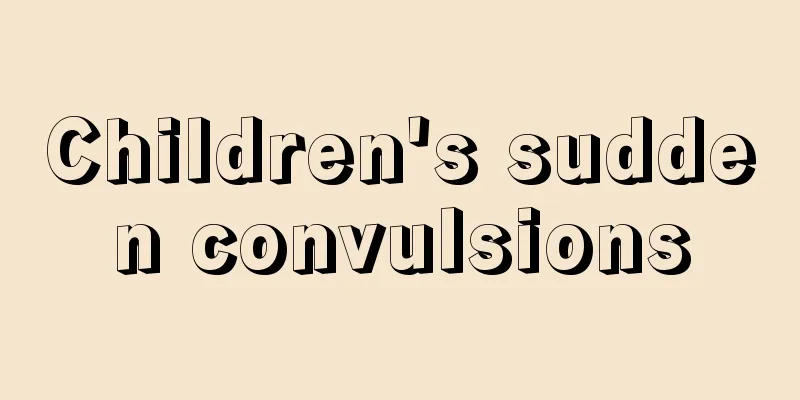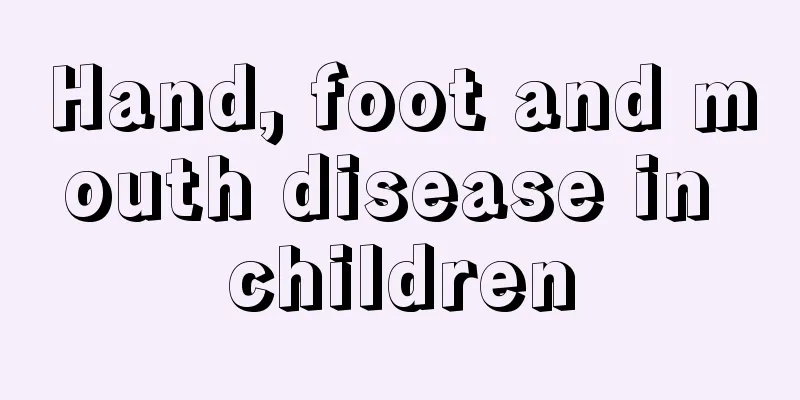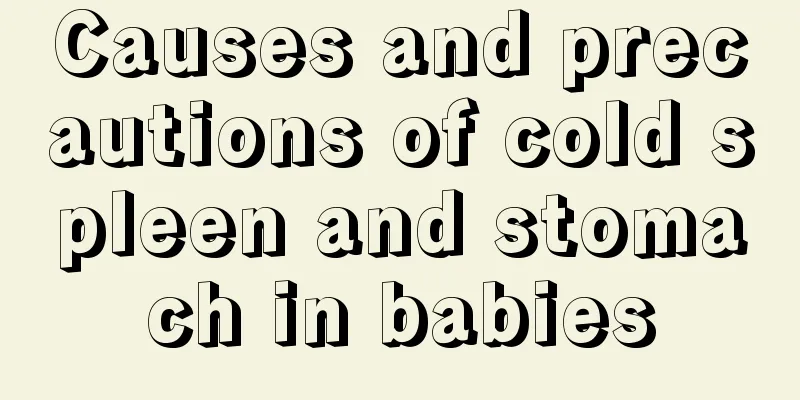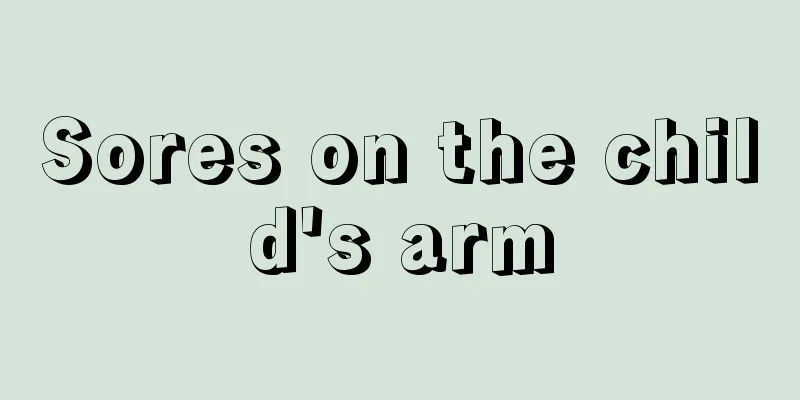Clinical manifestations of heart failure in children
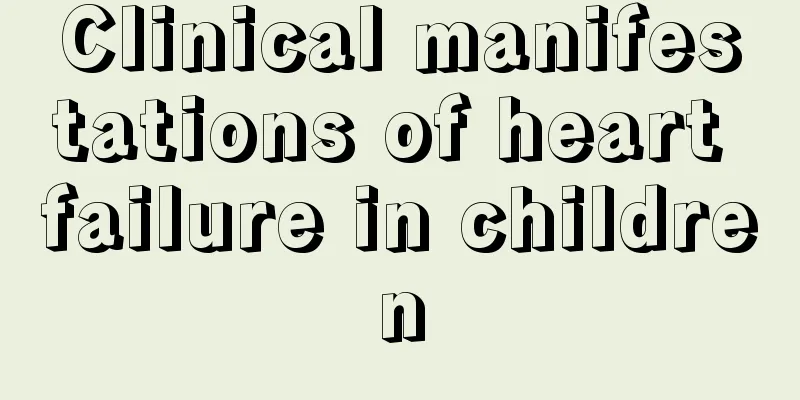
|
The situation of heart failure in children is still quite critical. Many children with heart failure will directly experience symptoms of difficulty breathing. In this case, they must be given oxygen as soon as possible to make their condition improve faster. Some children will also have a series of symptoms on the skin, leading to wheezing in the lungs. These are relatively common symptoms. 1. Acute heart failure (1) Early symptoms: Early signs of reduced left ventricular function include fatigue, significantly reduced exercise tolerance, and a heart rate increase of 15 to 20 beats per minute in people with normal heart function, followed by exertional dyspnea, paroxysmal nocturnal dyspnea, and high-pillow sleep. Examination may reveal left ventricular enlargement, early or mid-diastolic gallop rhythm, and moist rales, dry rales, and wheezing at the bases of both lungs. (2) Acute pulmonary edema has an acute onset and can rapidly develop into a critical condition. Sudden severe dyspnea, orthopnea, wheezing, irritability and fear, with a respiratory rate of 30 to 50 times per minute; frequent coughing and spitting up large amounts of pink foamy sputum; rapid heart rate, with a gallop rhythm often audible at the apex of the heart; both lungs are filled with moist rales and wheezing. (3) Cardiogenic shock 1) Hypotension persists for more than 30 minutes, with systolic blood pressure dropping below 90 mmHg, or systolic blood pressure drops by ≥60 mmHg in patients with pre-existing hypertension. 2) Tissue hypoperfusion state ① Clammy, cold, pale and cyanotic skin with purple streaks; ② Tachycardia > 110 beats/min; ③ Significant decrease in urine output (<20 ml/h), or even anuria ④ Disorder of consciousness, often with irritability, agitation, anxiety, fear and a sense of impending death; systolic blood pressure is lower than 70 mmHg, inhibitory symptoms may appear, gradually developing into confusion or even coma. 3) Hemodynamic disorder: PCWP ≥ 18 mmHg, cardiac output index (CI) ≤ 36.7 ml/s·m (≤ 2.2 L/min·m). 4) Metabolic acidosis and hypoxemia 2. Chronic heart failure (1) Symptoms and signs of left heart failure Most patients with left heart failure seek medical attention due to decreased exercise tolerance, dyspnea or fatigue. These symptoms may occur at rest or during exercise. The same patient may have multiple diseases. Dyspnea is the most common symptom of left heart failure and can manifest itself in various forms, including exertional dyspnea, orthopnea, and paroxysmal nocturnal dyspnea. Decreased exercise endurance and fatigue are manifestations of insufficient blood supply to skeletal muscles. Patients with severe heart failure may experience Cheyne-Stokes respiration, which indicates a poor prognosis. In addition to the existing signs of heart disease, physical examination may also reveal enlarged left ventricle, alternating strong and weak pulses, and rales in the lungs can be heard by auscultation. |
<<: Does topical hormone cream have any effect on children's vaccinations?
>>: Newborn baby face red spots
Recommend
A faint red color in early pregnancy
If the two-child policy is vigorously developed, ...
Why does my baby have a fever and cold hands?
Children are naturally lively and active, but onc...
What to do if your child has a stuffy nose
It is definitely troublesome for parents if their...
What are the developmental indicators of a 1-year-old and 8-month-old baby?
I don’t know if you are aware of the developmenta...
What are the symptoms and prevention measures of mumps?
Mumps is a common disease that occurs when the pa...
What should I do if the beans planted by my baby become festering and burst?
Planting beans for babies is actually a common na...
The fastest way to cool down a child
Many adults are very concerned about the health o...
One-year-old baby allergic cough
Allergic cough is a type of cough. This condition...
What to do if your child has rhinitis and is blocked
Sometimes we see babies breathing through their m...
Two-year-old baby development indicators
Ten months of pregnancy and one day of delivery e...
What causes dark circles under boys' eyes?
Nowadays, more and more people have dark circles ...
Red pimples on children's body are very itchy
When children are young, their bodies are not ful...
What department should I go to if my child has nose bleeding?
Nose bleeding is a very common problem and one th...
How much milk does a 10 month old baby need
When babies are about ten months old, their bodie...
Why does the baby's lower lip tremble?
When a baby first appears in this world, he or sh...

